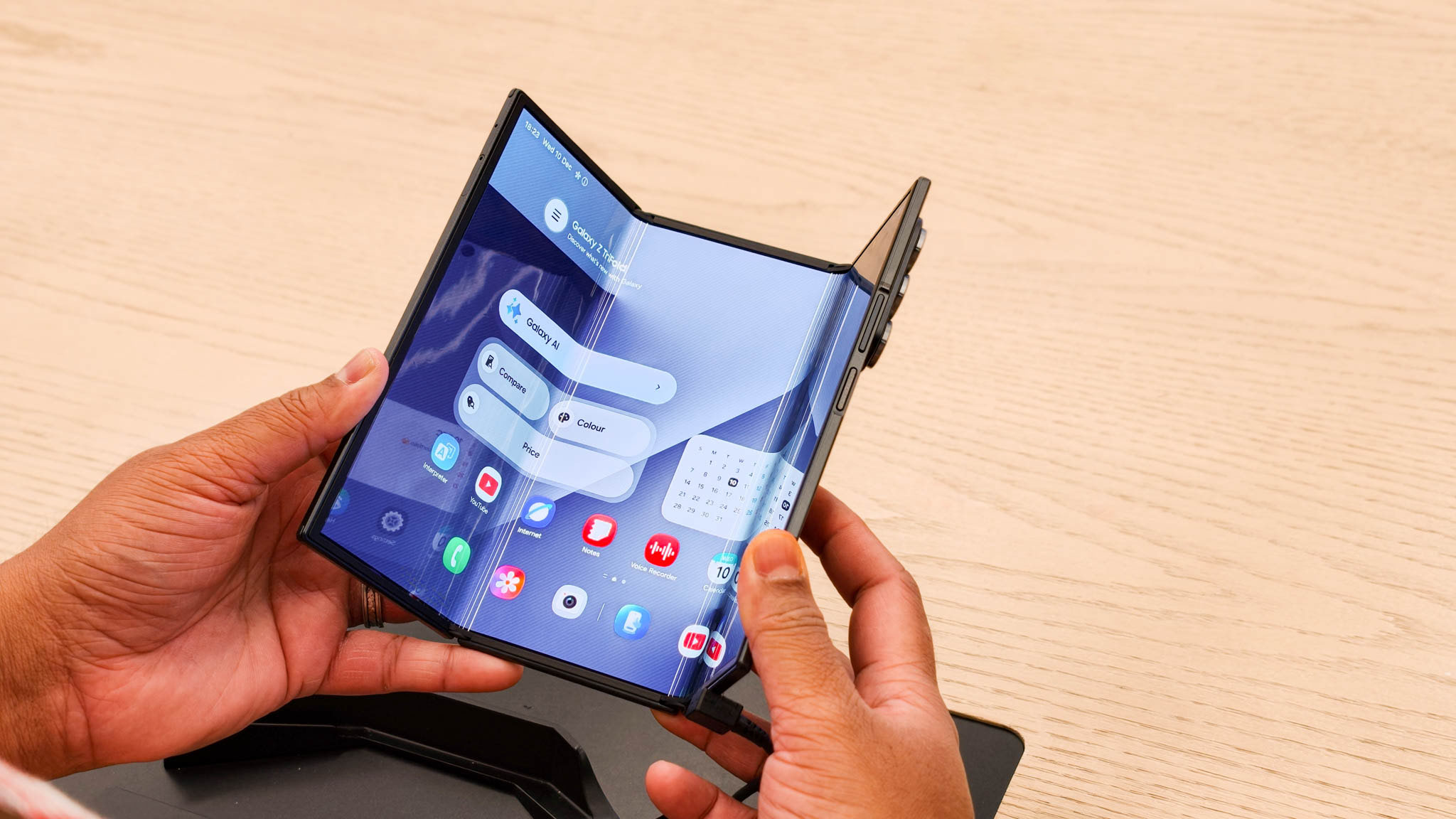We tested all of the best wireless headphones for Android, and this is what we discovered
The best cans to cover your ears.
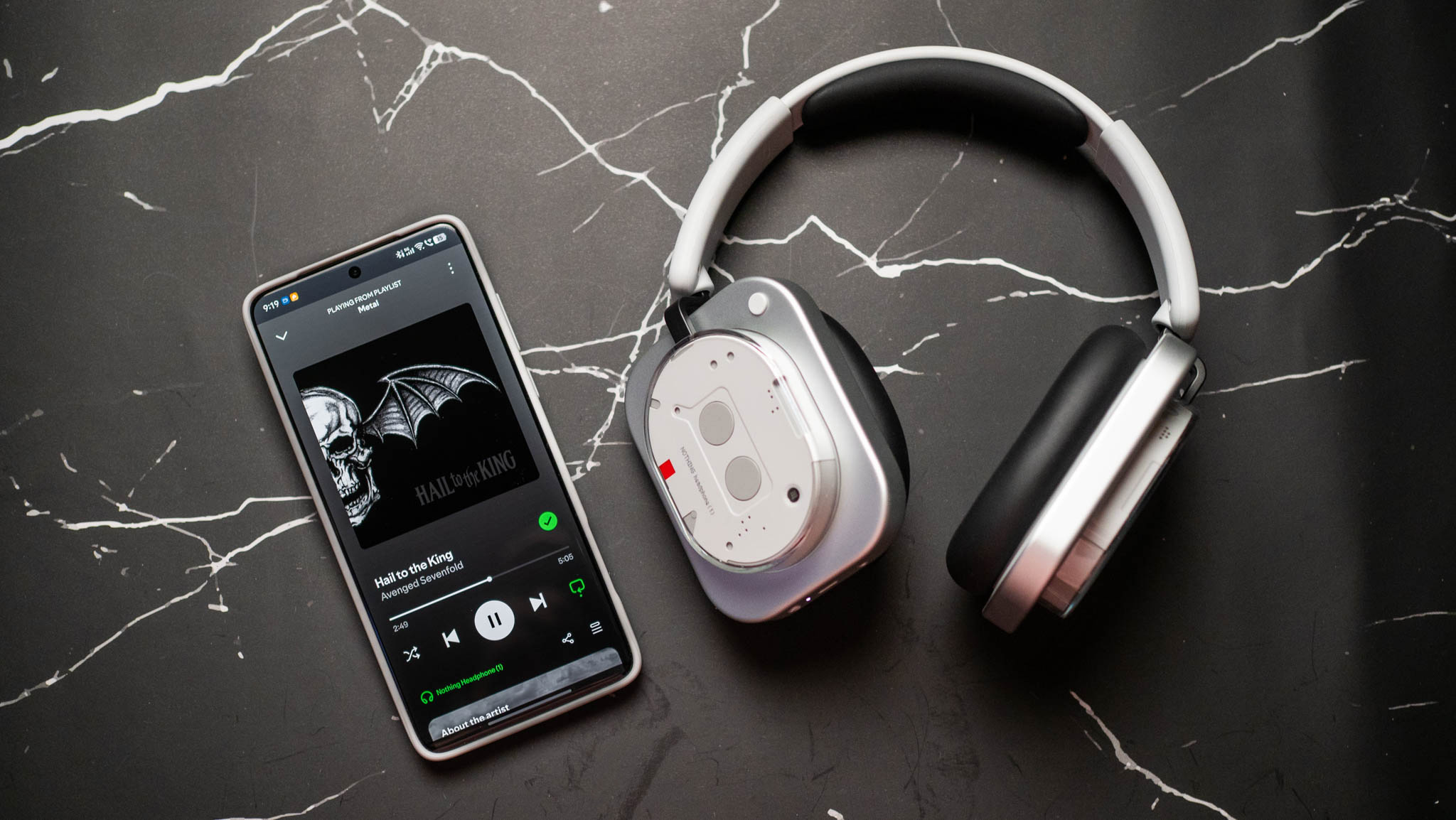
At a glance
1. Best overall
2. Best budget pick
3. Best premium pick
4. Best battery life
5. Best noise cancelation
6. Best for students
How to choose
How we test
Wireless headphones have come a long way in a relatively short time. Technology advancements have made it possible for your music to sound great and, in some cases, exactly the way it was recorded. That's a far cry from the snap, crackle, and pop we used to have.
The choices have also expanded, and you'll find wireless headphones at every price range. It can be tough to find the right balance of features, audio quality, comfort, and price. That's where we can help.
After testing all the major contenders, we've rounded up the best wireless headphones in every category. Brands like Sony, Bose, and Sennheiser continue to lead the pack, and in this guide, we'll help you find the one that fits your needs best.

For 20+ years, Ted Kritsonis has been spending a lot of time testing out gadgets to help others make the best decision with their hard-earned money. When it comes down to audio devices, Ted's picks come from countless hours of listening for all the nuances that matter.
At a glance
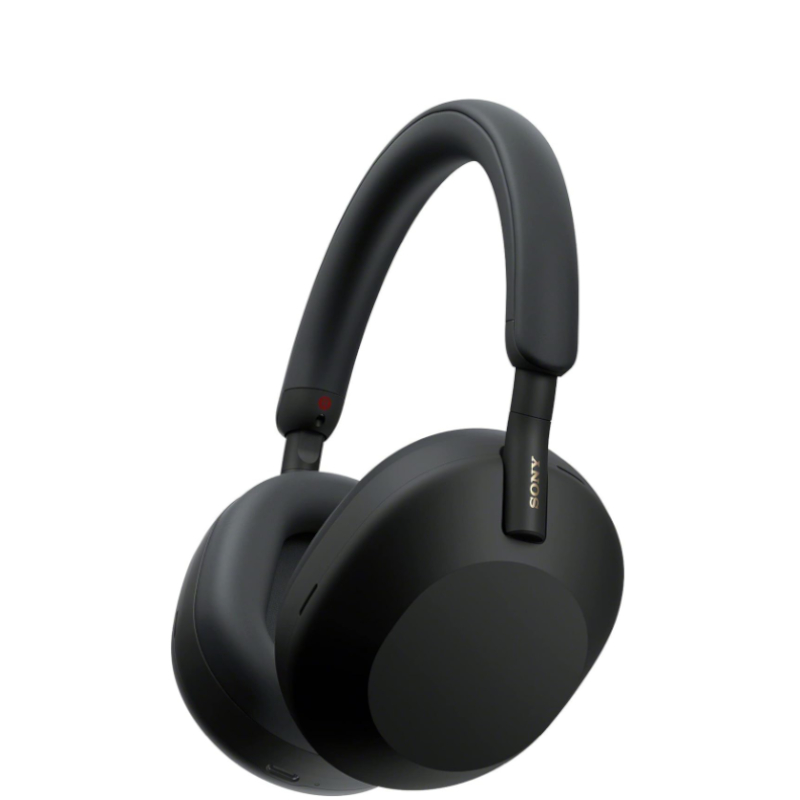
Best overall
The Sony WH-1000XM5 earned the top spot thanks to their sophisticated blend of customizable sound, excellent battery life, and top of the line ANC.
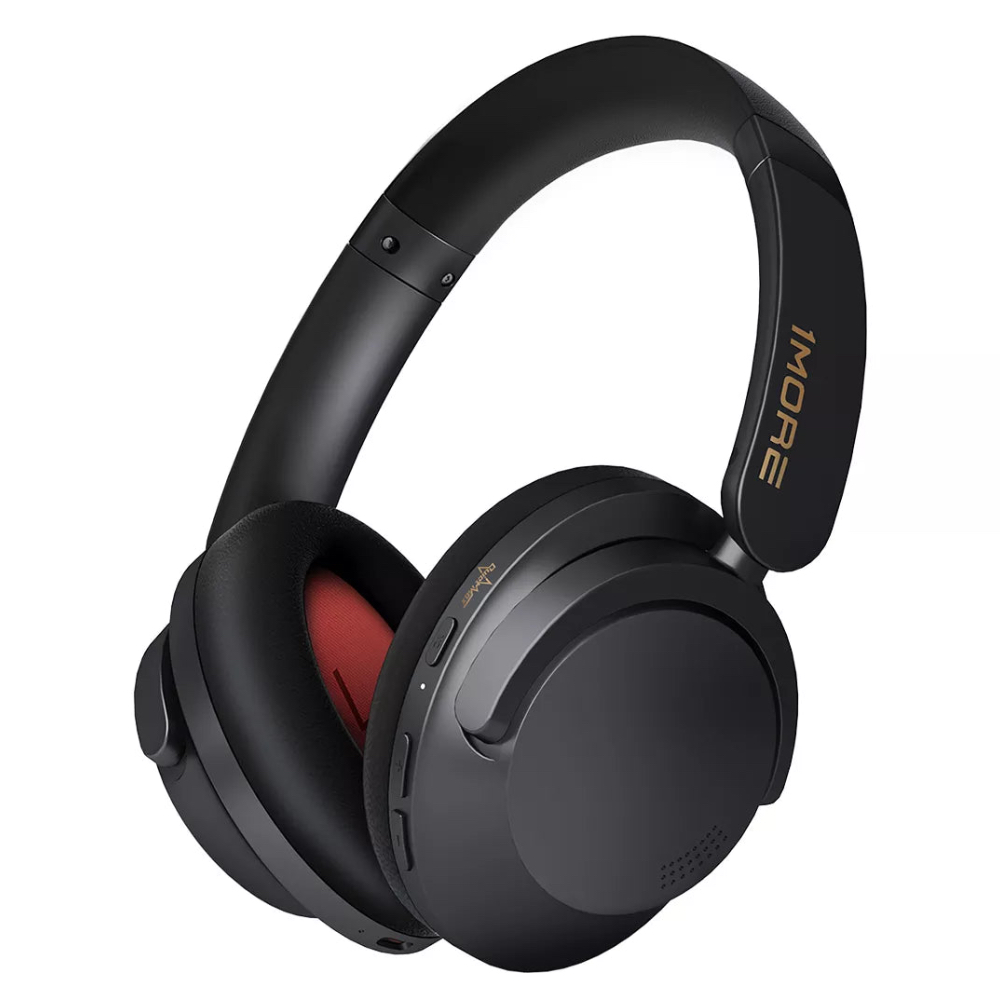
Best budget pick
For just shy of 100 bucks, 1More's SonoFlow Pro HQ51 headphones give you great sound, ANC, LDAC codec support, and up to 100 hours of battery life.
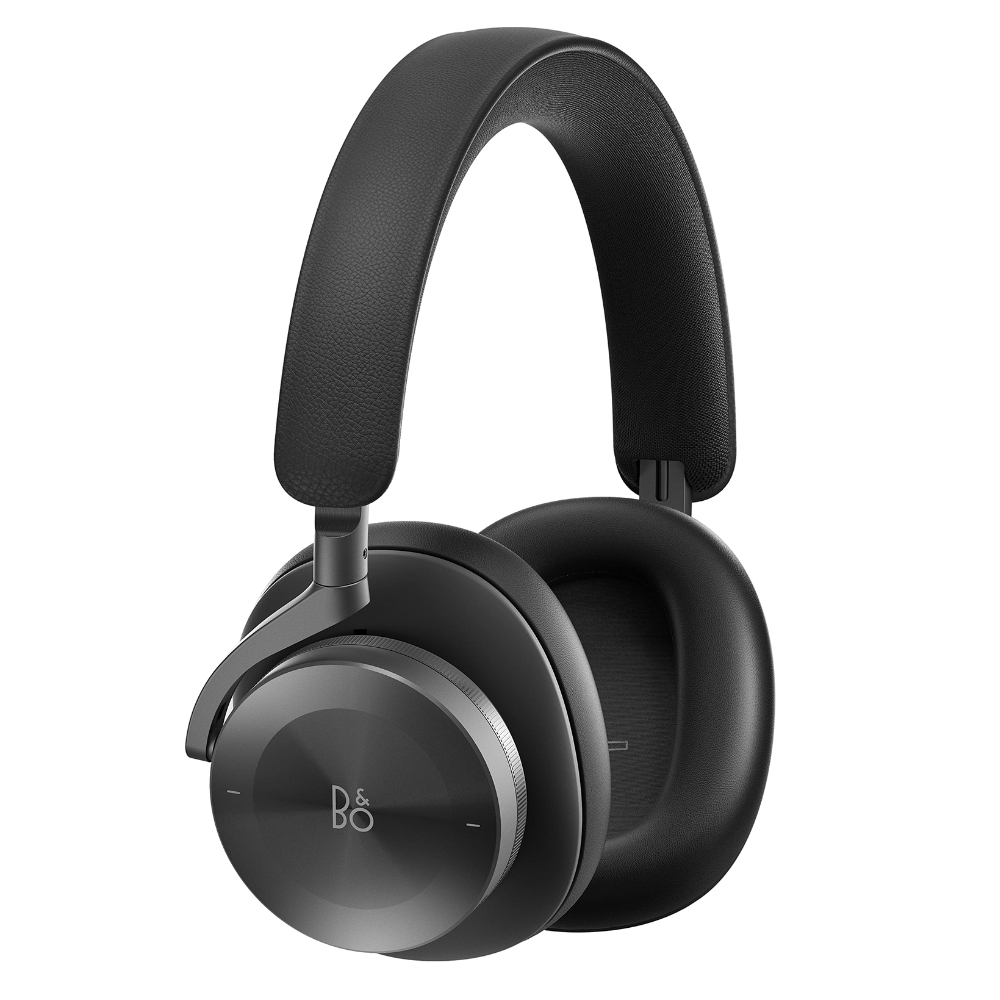
Best premium pick
If you can afford them, the Beoplay H95 from Bang & Olufsen are a great pick, complete with titanium audio drivers, intelligent ANC, and loads of battery life.
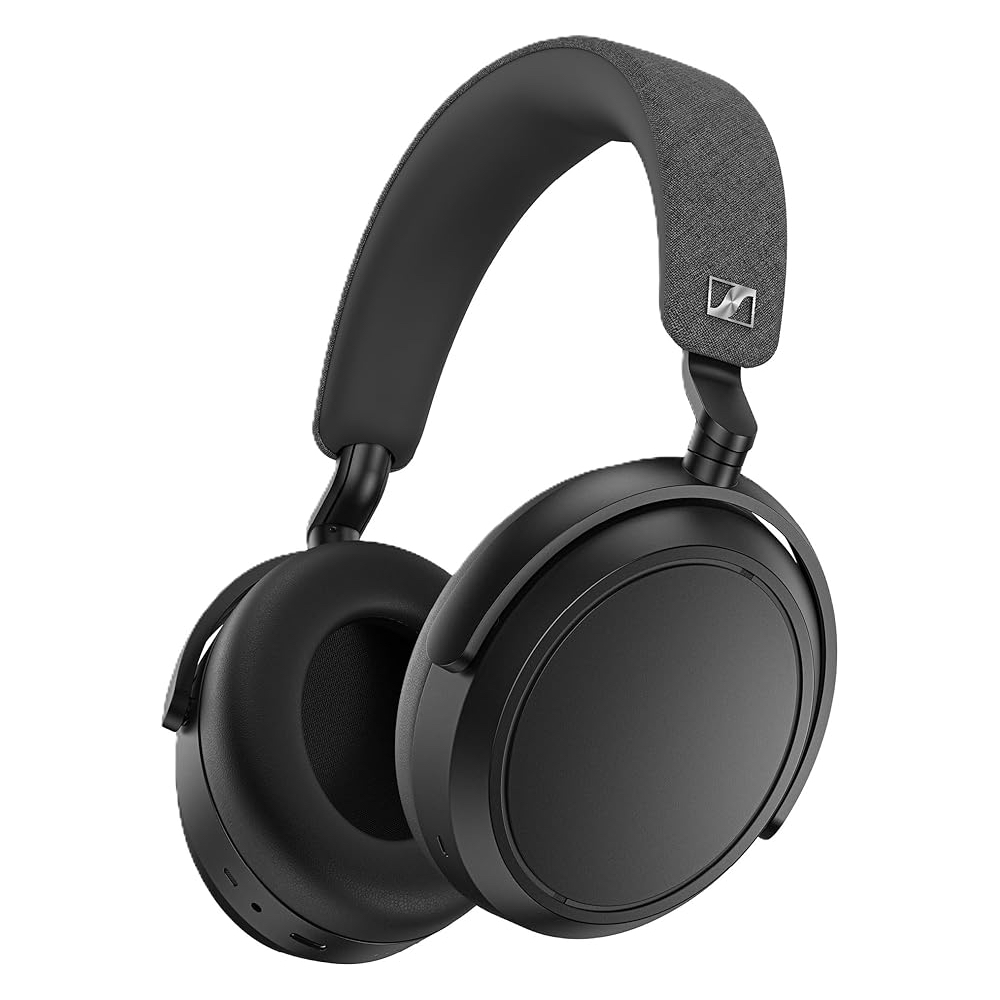
Best battery life
In addition to all-day comfort, excellent ANC performance, and touch controls, the Sennheiser Momentum 4 are built to last up to 60 hours with ANC enabled.
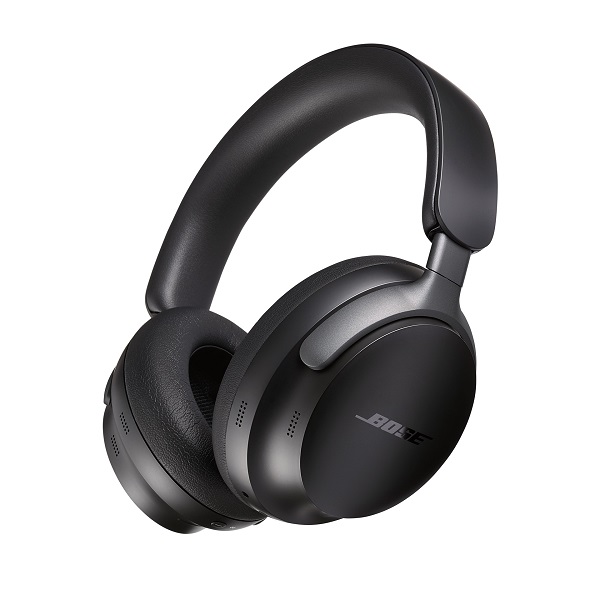
Best noise cancelation
If you're looking to block out unwanted noise, the Bose QuietComfort Ultra Headphones boast some of the best active noise cancelation on the market.
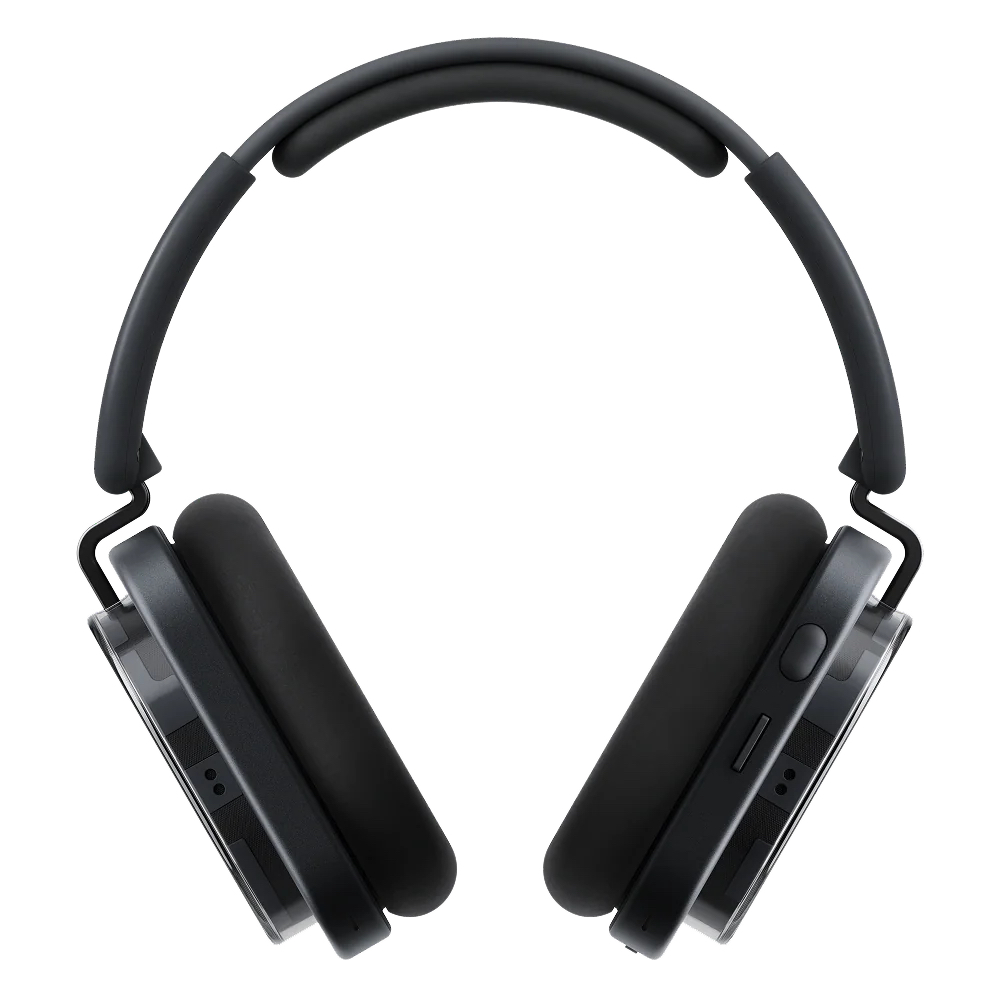
Best for students
Nothing Headphone 1 keeps the distinctive transparent design with a comfortable fit, physical controls buttons, strong ANC, and long battery life.
Best overall
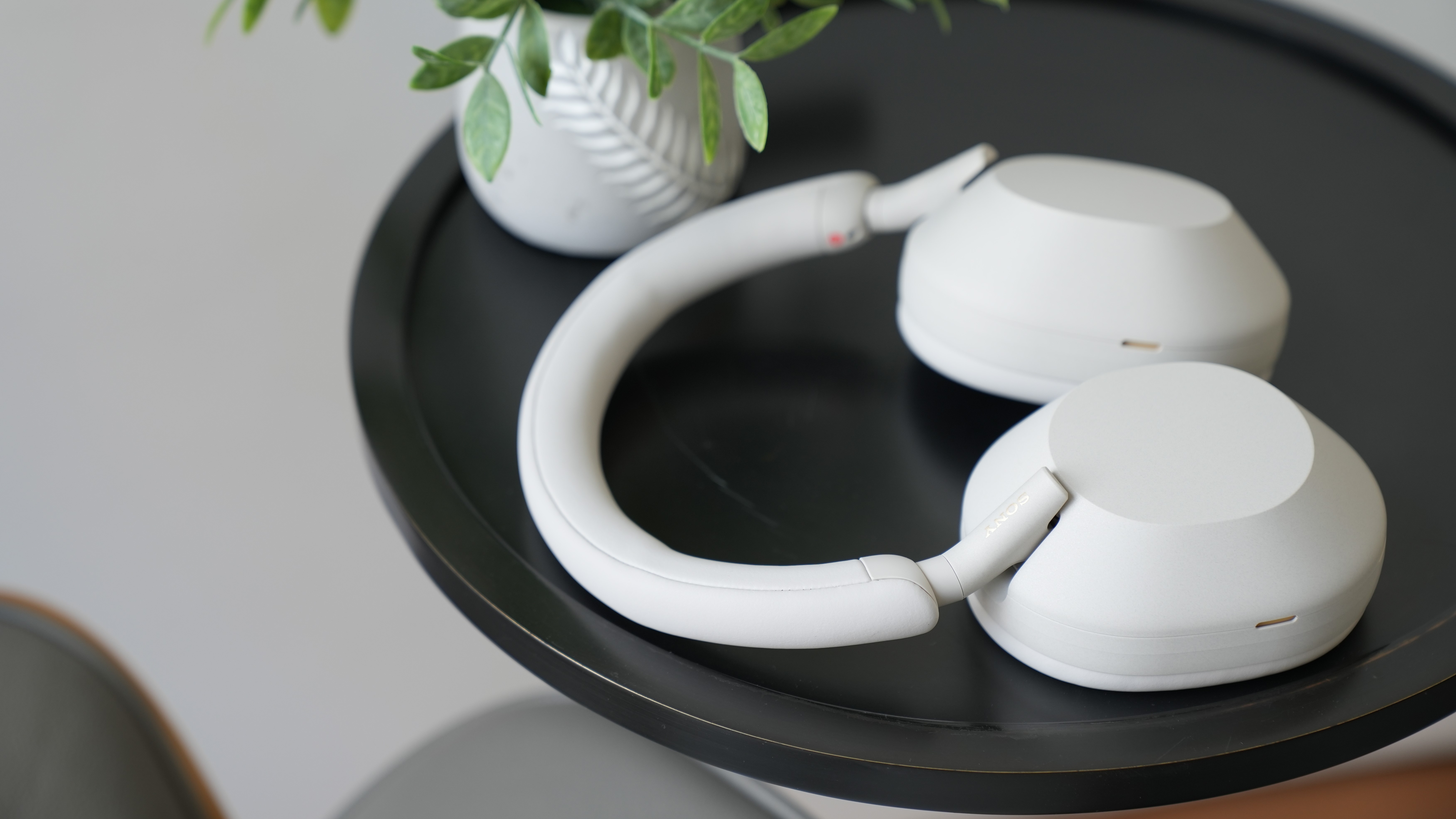
Specifications
Reasons to buy
Reasons to avoid
There aren't many flaws to point out with the WH-1000XM5, based on our review. Their predecessors, the WH-1000XM4, already found themselves at the top of the heap for wireless headphones for Android. One of the biggest reasons remains the ANC performance, courtesy of Sony's QN1 processor and a dual noise sensor that does the work of blocking out the background. Commuting on a bus, train, or plane won't be a problem while wearing these. Sony's pedigree in this area shows itself with true wireless earbuds, too.
Sony did change the design to a degree, going for a cleaner look, which also unfortunately means limited folding ability. They'll go flat, just not curled up. The sound signature preserves the same bass-heavy balance that sometimes drowns out the mids and highs. You could always adjust that through the equalizer in Sony's Connect app, including a "clear bass" slider for the potency of the bass itself. It's worth using those available tools to get a more personalized sound out of these excellent headphones.
You can pair with two devices simultaneously to listen to music on one device and take calls on another. Phone calls also keep their clarity through Sony's Precise Voice Pickup and Speak to Chat features. The excellent battery life will let you listen for longer, too. The WH-1000XM5 don't have a bigger battery, maintaining the same 30 hours per charge (depending on volume level and ANC use). So fast charging is convenient when you need some juice in a pinch. The only bummer is that you can't plug in to listen and charge at the same time.
Although the Sony WH-1000XM6 headphones are already here, the WH-1000XM5 are still the best overall pick due to their excellent price-to-performance set of offerings.
Best budget pick
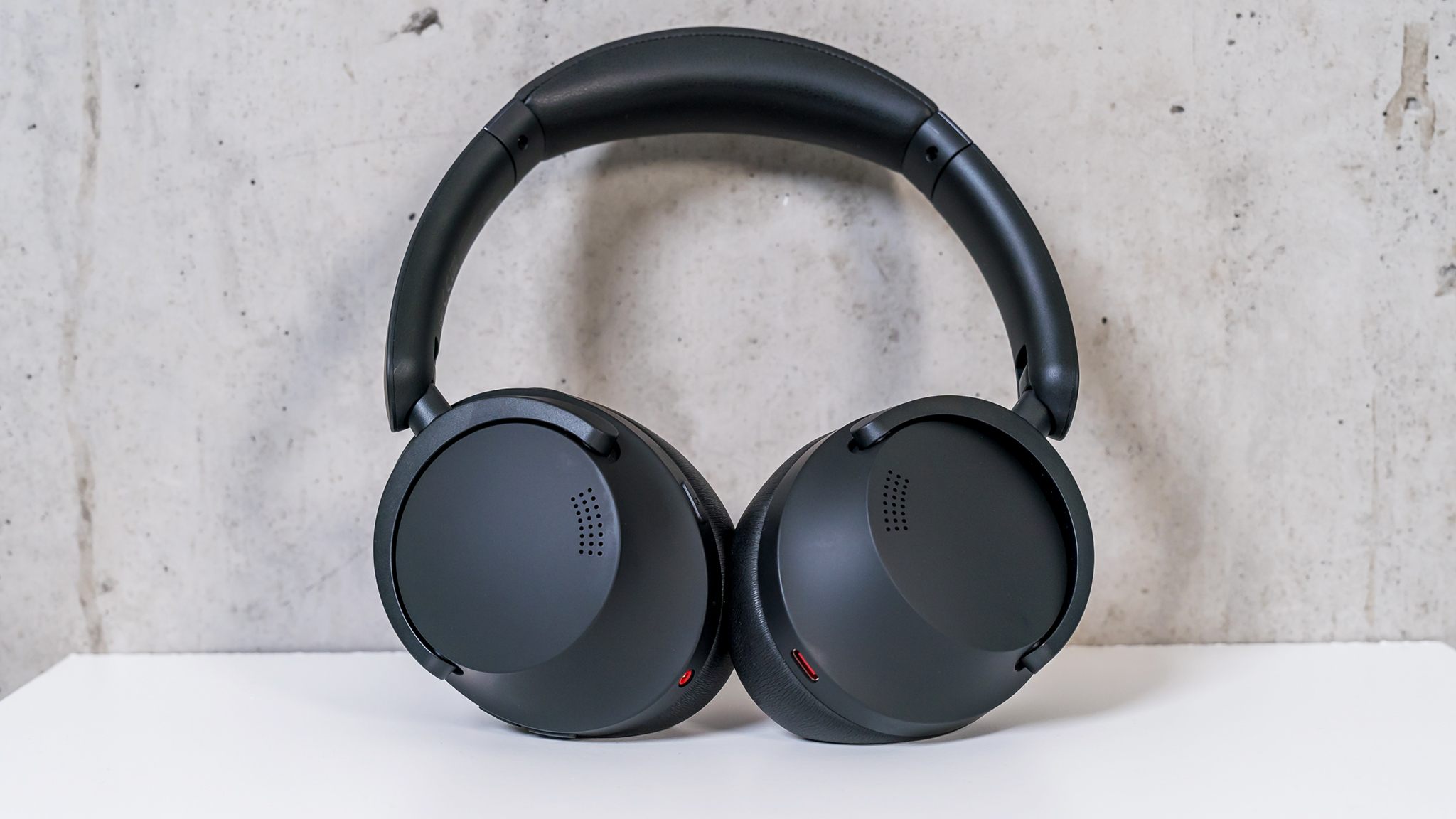
Specifications
Reasons to buy
Reasons to avoid
A lot of over-ear headphones now come with ANC out of the box, but that's not all that makes these sub-$100 headphones such a bargain. 1More has been consistent in offering more for less with its audio products, so this shouldn't come as a surprise, regardless of whether you know the brand or not.
The 1More SonoFlow Pro HQ51 have new 40mm diamond-like carbon drivers, which contribute to impressive sound quality with good bass, crisp highs, and well-balanced mids. Tune the sound even further through the 1More app, where you'll find 12 EQ presets and the option to create your own. You can even get hi-res audio through LDAC codec support, along with spatial audio.
ANC works well for headphones that cost considerably less than others on this list. It's actually the passive isolation from the snug fit that really helps muffle some of the ambient noise you don't want to hear. On the other hand, transparency also works well when you want to hear what's happening around you.
Then there's battery life, which is just ridiculous. You can get up to 100 hours per charge with ANC off, and up to 65 hours if you leave it on, depending on how loud you go with volume. If you're in a rush, a quick five-minute charge can provide up to 10 hours of playback.
Best premium pick

3. Bang & Olufsen Beoplay H95
Our expert review:
Specifications
Reasons to buy
Reasons to avoid
If money isn’t an object, Bang and Olufsen’s Beoplay H95 headphones might just be the most luxurious set of cans on the market. With a retail price of around $889, these headphones are far from cheap, but Bang and Olufsen justify the steep price with a ton of premium features right out of the box.
For starters, you get two 40mm titanium drivers that provide crystal clear, massive sound that can be finely adjusted in the companion app. The active noise cancelation is also outstanding, and the battery will last up to 50 hours on a single charge. The headphones come in a sleek hard shell carrying case, and like most Bang and Olufsen products, they’re simply beautiful to look at.
The earcups are soft and comfortable enough to wear all day, but vegans beware: they’re constructed with genuine leather. These luxury headphones are sure to turn heads, but the steep price tag is going to make them a tough sell for many people, especially since other more-affordable headphones on this list will perform just as well. Still, if you want the height of luxury, the Beoplay H95 are the best you can buy.
Best battery life
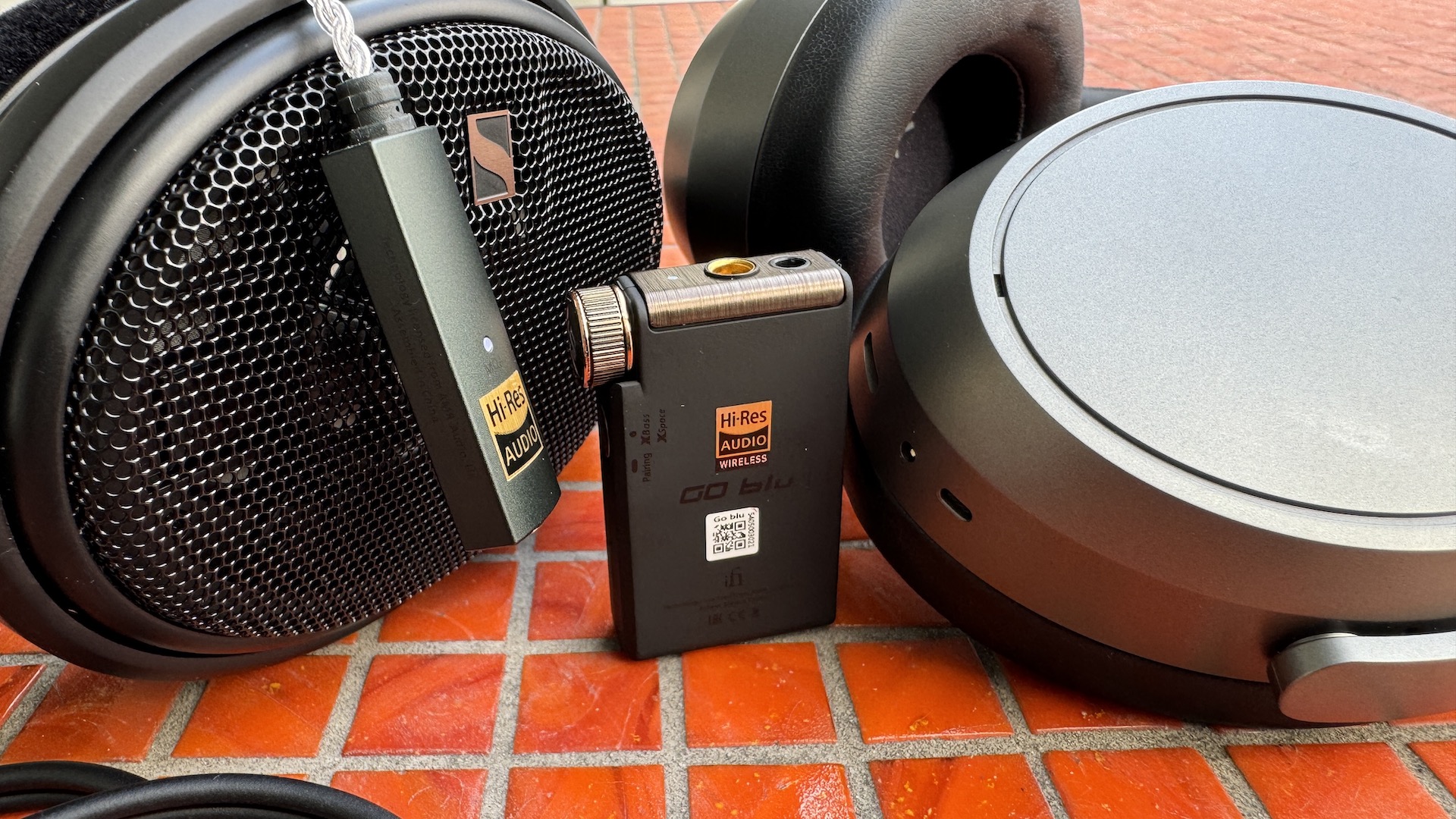
Specifications
Reasons to buy
Reasons to avoid
Sennheiser's heritage in great sound quality was apparent in our review of the Momentum 3 Wireless and as good as they were, there was still room for improvement. Two areas stood out: ANC and battery life. Noise cancelation does well with low-frequency sounds, and despite an improved ability to muffle higher pitches, overall performance won't match what you can get with Sony and Bose, though the Wind Reduction mode is a nice perk.
On the battery side, Sennheiser took a giant leap forward. The previous pair could only muster up to 17 hours per charge. With the Momentum 4 Wireless, you can play audio for up to 60 hours. Even if you leave ANC on, you could hit north of 50 hours. That's an enormous improvement that changes how and when you charge them. When you do, you can still use the USB-C port for simultaneous listening and charging when connected to an Android phone or tablet.
That's great news while you're listening because the soundstage is as rich as you'd expect for a brand like this. A slightly boosted bass meshes well with clear midrange and smooth treble for an appreciably balanced sound signature. It's wide enough to suit almost every musical genre. I do recommend using Sennheiser's Smart Control app to adjust the equalizer and bring the best possible sound out of them.
Best noise cancelation
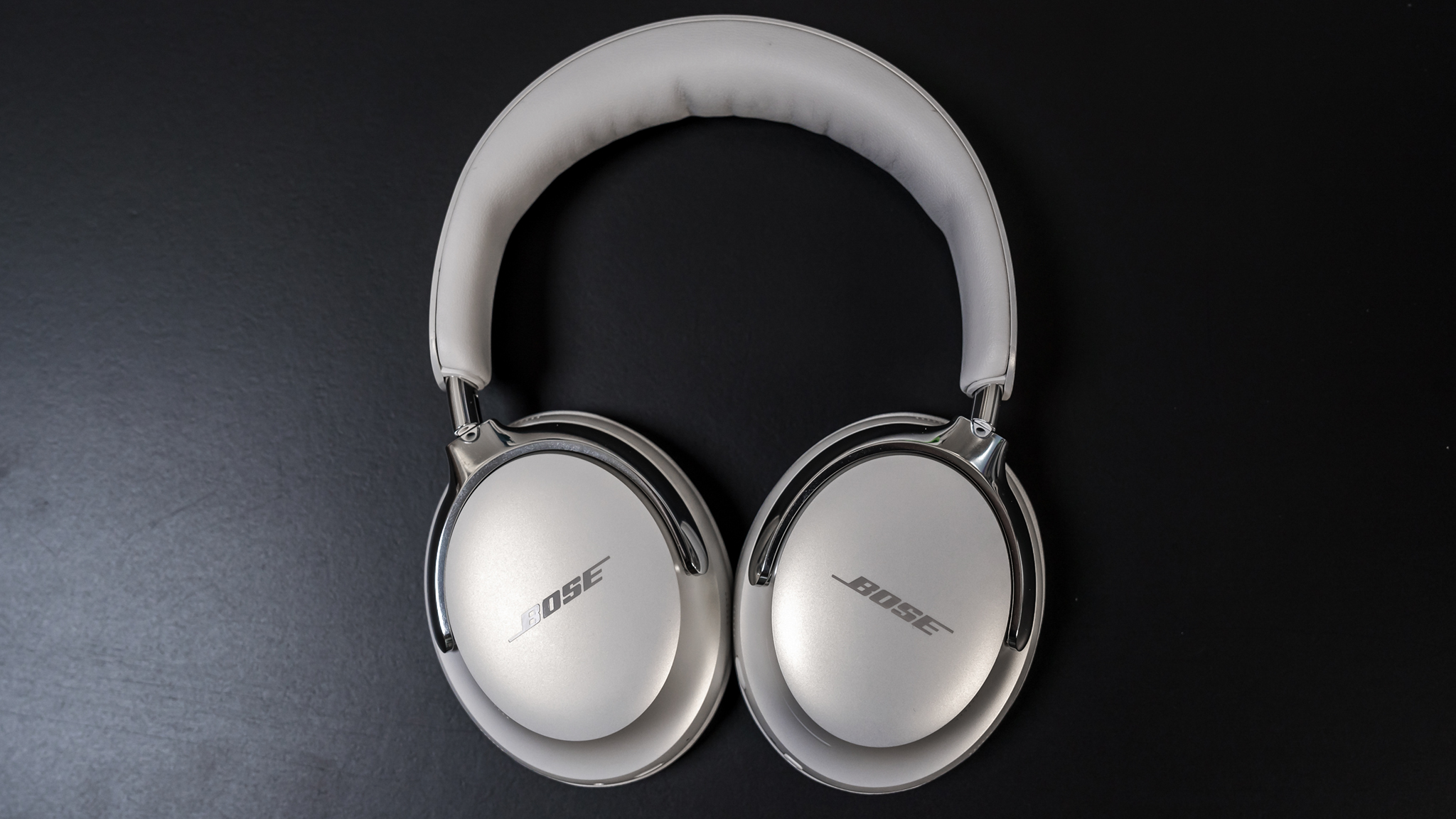
Specifications
Reasons to buy
Reasons to avoid
Bose has a solid over-ear headphone lineup that includes the previous Noise Canceling Headphones 700 and QC 45 II, which are among the best you can find for effective ANC performance. The QuietComfort Ultra Headphones prove they can maintain that premise and expand on it further in our review. They sound great, sticking to a balanced approach in the sound profile that you can adjust how you want in the Bose Music app. Immersive mode brings in spatial audio with head tracking, only adding to one of the best sonic over-ear pairs you can buy.
The ANC serves to help drive that point further, doing a solid job of blocking out most persistent noises, like engines, and some mid-range sounds like people talking. They also do better with higher-pitched sounds, putting them right on par with the best in the business. If you want some customization, these support CustomTune, Bose's algorithm to adjust ANC based on your own hearing.
Bose also made the QuietComfort Ultra comfortable to wear, along with them being easier to transport because of their new folding design and protective case. At up to 24 hours per charge, battery life is also pretty decent. A quick 15-minute fast charge through USB-C will deliver up to 2.5 hours of playback, ensuring you can listen to some tunes in a pinch.
Best for students
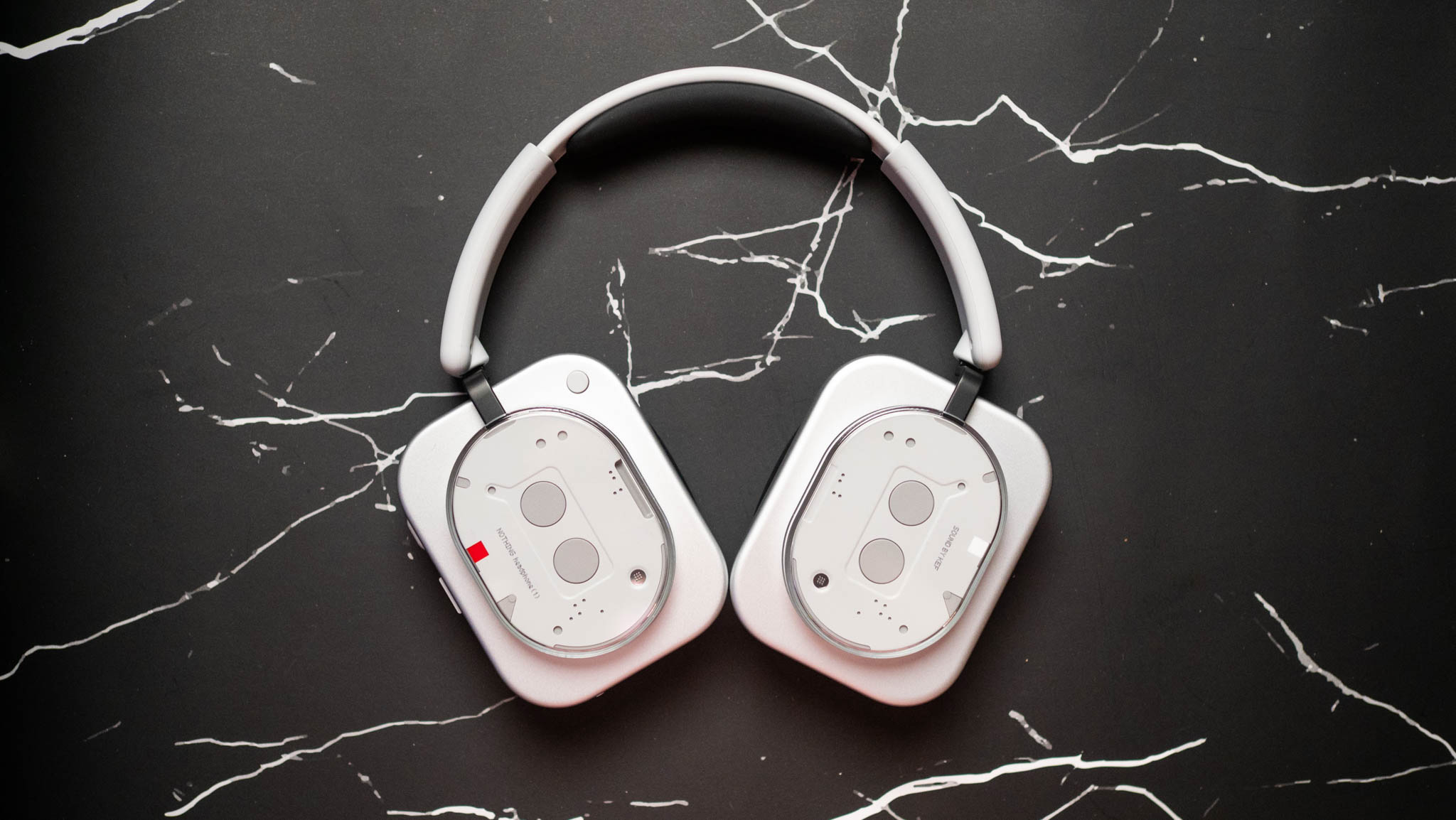
Specifications
Reasons to buy
Reasons to avoid
Nothing Headphone 1 keeps the company’s distinctive transparent design that some may find a little bold, but the younger crowd will love. Unlike others in this segment that often use a round design, the Nothing Headphone 1 offers a sleek rectangular shape while maintaining a premium build with an aluminum chassis.
In terms of sound, the Nothing Headphone 1 features 40mm dynamic drivers that emphasize bass and lower frequencies. Though this bass-forward profile may not suit everyone, the sound can be easily customized to your preference using the Nothing X app. And if you're into lossless audio, you'll appreciate the inclusion of a 3.5mm headphone jack.
But perhaps the best part of the Nothing Headphone 1 is its physical control buttons, which provide more tactile feedback and ease of use compared to the swipe and touch controls found on most competitors. Battery life is impressive too, with up to 35 hours of playback with active noise cancelation (ANC) on, and a remarkable 80 hours without it, meaning you'll likely only need to charge once a month if used moderately.
Color options may be limited, but for the price, the Nothing Headphone 1 offers a lot of value.
How to choose
Which wireless headphones are best with Android?
Why you can trust Android Central
Good headphones for Android aren't hard to come by when you know where to look. This list of the best wireless headphones is made up of several great options, some of which are especially good at a particular aspect of audio. If that's where you want to start, the Sony WH-1000XM5 are an excellent choice to kick off your search. It's hard to top their combination of outstanding noise-canceling technology, great sound, long battery life, handy controls, and a comfortable fit.
While the XM5 don't look or sound dramatically different from their predecessors, the improved ANC and phone call quality make them even more well-rounded than the previous ones already were. As a result, you can't go wrong listening to whatever you like most whilst wearing them.
Headphones are inherently subjective for a variety of reasons based on how they fit, how they sound, how they look, and who makes them. Add battery life and noise cancelation into that mix and we're talking about a balancing act that requires more careful assessment.
The good news is that the best options often check those boxes in the right ways. Battery life has improved to the point where anything less than 24 hours on an over-ear pair of cans can be viewed as outliers. Same with active noise cancelation, which only gets better and better — and frankly speaking, this list has the pairs that set the bar for all others in that regard.
All that said, what's also made headphones change over the last five years is the way dedicated apps help you customize what you want from them. That could be an EQ to tweak the sound tuning, onboard control adjustments, different levels of noise cancelation, and more. Finding a pair of headphones that can better suit your own tastes is what makes the listening experience feel more satisfying.
They also have to fit right, which is easier to manage when talking about over-ear headphones, but ear cups can differ in both size and overall comfort. Not to mention cushioning on the headband, which is where discomfort tends to happen most often.
If you plan to travel or commute with them, keep an eye out for headphones that come bundled with a protective case for easier transport. It can be expensive to buy a good pair of headphones, so best to keep them safe from any potential scuffs or damage along the way.
How we test
☑️ One of the oldest and most trusted Android sites on the web
☑️ Over 15 years of product testing
☑️ Thousands of products reviewed and tested since 2007
☑️ Dozens of audio products tested by our team every year
Testing any pair of headphones at Android Central requires listening to content in a variety of settings and conditions. Much like you, as a consumer, would want to know what to expect when wearing them wherever you want to go, we take the same approach. We don't run benchmarks to measure audio spectrum variances on a graph or chart because not all situations in real life sound the same.
How will headphones or earbuds sound while working in a quiet room? How do they stand up to street noise or during a commute? Do brands ultimately deliver on their claims? With features like active noise cancelation (ANC), transparency, spatial audio, hi-res audio, and other custom adjustments, personal audio has never felt more personal.
Since music and audio content (podcasts, audiobooks) are highly subjective, it's always important to understand the nuances of every pair of headphones or earbuds we test. We always endeavor to communicate that in our coverage. We play audio from different sources and from different devices. Our testing often shows that what they sound like out of the box isn't always a mark of their true potential, especially when there are tweaks available. Companion apps make them connected devices with granular controls designed to let you fine tune what you want, be it through an equalizer or adaptive settings.
Finding depth means putting them through their paces in different places. That requires integrating them into daily life to understand what works and what doesn't.
Get the latest news from Android Central, your trusted companion in the world of Android

Ted Kritsonis loves taking photos when the opportunity arises, be it on a camera or smartphone. Beyond sports and world history, you can find him tinkering with gadgets or enjoying a cigar. Often times, that will be with a pair of headphones or earbuds playing tunes. When he's not testing something, he's working on the next episode of his podcast, Tednologic.
- Sanuj BhatiaContributor
- Jerry HildenbrandSenior Editor — Google Ecosystem
- Brady SnyderContributor
- Patrick FarmereCommerce Editor
